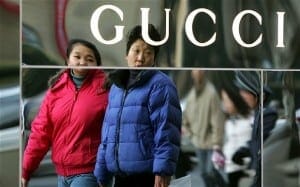Now that wealthy individuals from China are becoming major buyers of overseas assets, many of them need to learn how investment works outside of the Middle Kingdom. Typically, Chinese investors have grown accustomed to high rates of return, and a limited range of investment options.
Outside of China, however, the world may work differently, so a recent column in the Wall Street Journal tries to set out some guidelines for wealthy Chinese who are interested in buying up overseas assets.
Separate business from personal
In the piece of advice most relevant to property owners hoping to flog vacation homes or vineyards to Chinese billionaires, the Journal advises investors to think rationally.
“For property-loving Chinese, it is fine if they want to buy a second home in London or New York where their children are going to school. But it is important that they don’t mix investment with enjoyment. Buying an apartment in New York in case their children will go there 10 years later, and hoping for appreciation between now and then, is a risky strategy.”
Diversify
The next point on the Journal’s list is that investors should look at investments unrelated to China.
They advise investors to look for “shares of blue-chip companies in developed markets whose fortunes aren’t tied to China. The goal is to buy assets that hold up when the investor’s own business or economy is struggling. Industries such as health care, real estate and finance will do the job, as will a broadly diversified portfolio.”
Buy cheap
Duh. This is one of the least helpful, but most often repeated advisory gems, but the WSJ brings it up anyway. The problem of course, knowing what is the right price for an asset.
In this case, the Journal does go into specifics by recommending, “U.S. stocks look like reasonable values, even though they have performed well recently. The price-to-earnings ratio of the Standard & Poor’s 500-stock index, or the multiple that investors are willing to pay for a dollar of estimated corporate profits generated in the next 12 months, is at 14 this year, according to Birinyi Associates.”
Know what you’re buying
This point holds true for any investor, and may require wealthy Chinese to do more research and analysis than they are used to in their home markets.
On this point, the Journal advises investors that, “Structured products, leverage and anything that purports to offer high returns at low risk should be avoided. The only people who get rich from products like these are the brokers and insurance agents who sell them.”
Of course, the most relevant advice for Chinese investors is likely to be published in the Chinese-language press, but the Journal’s comments help to shed some light on some of the obstacles that Chinese investors will need to overcome, and should be helpful to brokers or asset owners looking to sell to China as well.

Leave a Reply